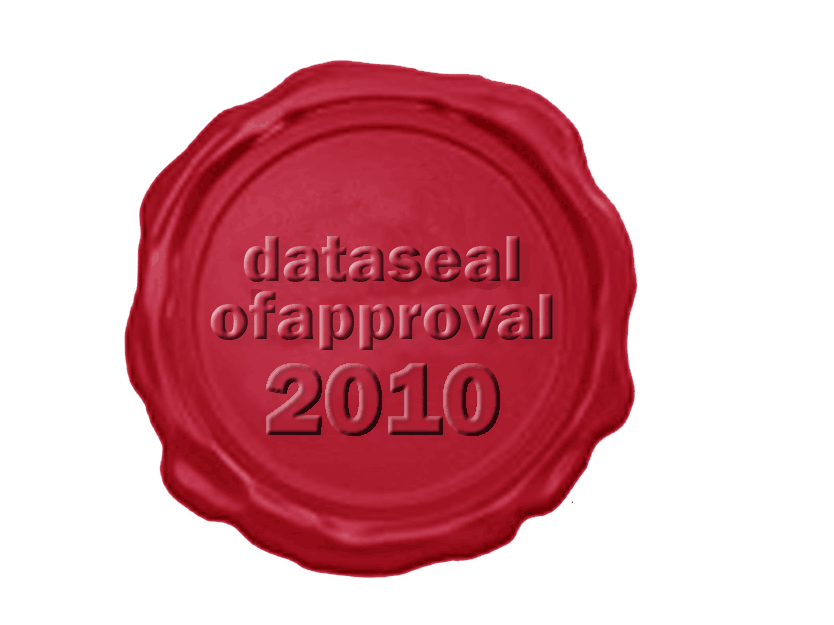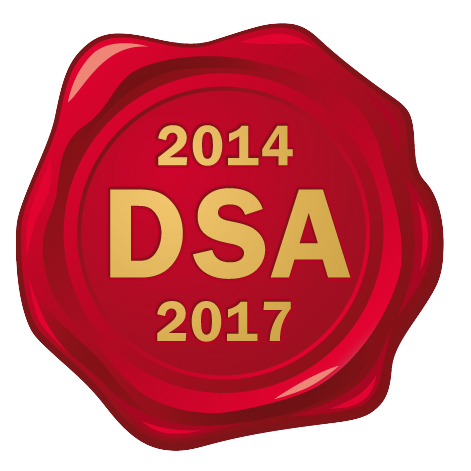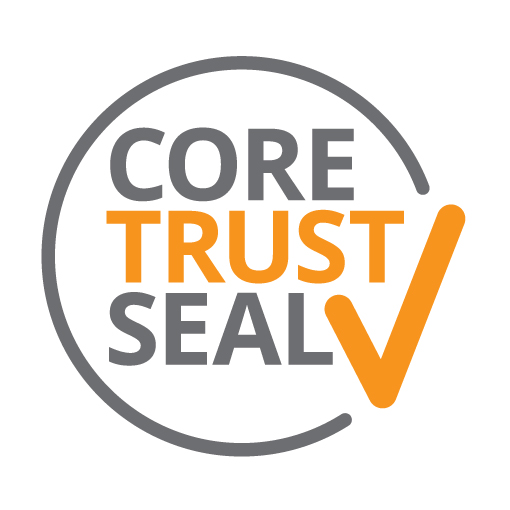CLARIN-D
- Laufzeit
-
Mai 2011 - September 2020
- PI
-
Jonas Kuhn
- Kurzbeschreibung
-
Eine web- und zentrenbasierte Forschungsinfrastruktur für die Geistes- und Sozialwissenschaften.
- Geldgeber
-
Bundesministerium für Bildung und Forschung (BMBF)
- Langbeschreibung
-
Das Projekt CLARIN-D hat das Ziel eine Forschungsdateninfrastruktur für die Geistes- und Sozialwissenschaften aufzubauen, die Forschende beim Auffinden, Aufbewahren und Auswerten von Daten unterstützt. Das IMS ist ein offiziell zertifiziertes CLARIN Zentrum des Typs B und betreibt ein in das Virtual Language Observatory (VLO) integriertes Datenrepositorium, das den Richtlinien des Data Seal of Approval (2018 umbenannt: Core Trust Seal) entspricht und es als vertrauenswürdiges digitales Repositorium auszeichnet.
CLARIN-D ist Teil der paneuropäischen CLARIN-Initiative. Seit dem Abschluss der Vorbereitungsphase (2008–2010, noch unter dem Namen D-SPIN) und der Implementierungsphase (2011–2015) befindet sich CLARIN-D gemeinsam mit seinen europäischen Schwesterprojekten in der Ausbauphase (2015–2020). CLARIN-D wird durch das BMBF und einige Bundesländer gefördert.
Weitere Informationen zu unserem Repositorium finden Sie auf unserer Repositoriumsseite, mehr Information zum Projekt CLARIN-D finden Sie auf der offiziellen CLARIN-D Webseite.
Demo: Probieren Sie unsere Webanwendungen Textual Emigration Analysis (TEA) (Tutorial) und DINGLER Termvergleich!
Kontakt: Bei Fragen hilft Ihnen das Team des Stuttgarter CLARIN-D Zentrums gerne weiter.
- Team
-
Momentan:
Ehemalige Mitarbeiter:
- Alexander Deutsch
- Markus Gärtner
- Wiltrud Kessler
- Cerstin Mahlow
- Kerstin Jung
- Jens Stegmann
- Heike Zinsmeister
Das CLARIN-D Zentrum am IMS wird von Prof. Dr. Jonas Kuhn geleitet.
- Ressourcen
-
Alle vom CLARIN-D Zentrum am IMS bereitgestellten Ressourcen finden Sie in unserem Repositorium und im Virtual Language Observatory (VLO).
Publikationen
- André Blessing, Andrea Glaser and Jonas Kuhn, 2015. Biographical Data Exploration as a Test-bed for a Multi-view, Multi-method Approach in the Digital Humanities in Proceedings of the First Conference on Biographical Data in a Digital World, Amsterdam, The Netherlands, April 9, 2015. CEUR Workshop Proceedings pp. 53-60.
- André Blessing, Fritz Kliche, Ulrich Heid, Cathleen Kantner and Jonas Kuhn, 2015. Computerlinguistische Werkzeuge zur Erschließung und Exploration großer Textsammlungen aus der Perspektive fachspezifischer Theorien In: Constanze Baum / Thomas Stäcker (eds.): Grenzen und Möglichkeiten der Digital Humanities. (= Sonderband der Zeitschrift für digitale Geisteswissenschaften, 1).
- Fabienne Cap, Ina Rösiger and Jonas Kuhn, 2015, A Pilot Experiment on Exploiting Translations for Literature Studies on Kafka's "Verwandlung", in Proceedings of the 4th Workshop on Computational Linguistics for the Literature (CLFL) at NAACL, Denver/Colorado
- Markus Gärtner, Katrin Schweitzer, Kerstin Eckart and Jonas Kuhn (2015): Multi-modal Visualization and Search for Text and Prosody Annotations. Proceedings of the 53rd Annual Meeting of the Association for Computational Linguistics and the 7th International Joint Conference on Natural Language Processing (ACL-IJCNLP 2015) System Demonstrations, July 26-31 2015, Beijing, China.
- Gottfried Herzog, Ulrich Heid, Thorsten Trippel, Piotr Banski, Laurent Romary, Thomas Schmidt, Andreas Witt and Kerstin Eckart (2015): Recent Initiatives towards New Standards for Language Resources. Proceedings of the International Conference of the German Society for Computational Linguistics and Language Technology (GSCL 2015), Sep 30--Oct 2 2015. Essen, Germany, Pages 154-156.
- Markus John, Steffen Koch, Florian Heimerl, Andreas Müller, Thomas Ertl and Jonas Kuhn : Interactive Visual Analysis Of German Poetics. In: /Global Digital Humanities/, Sydney, Australia, 29 June–3 July 2015.
- Jonas Kuhn and Nils Reiter, 2015. A Plea for a Method-driven Agenda in the Digital Humanities. In: /Global Digital Humanities/, Sydney, Australia, 29 June–3 July 2015.
- Nils Reiter and Jonas Kuhn, 2015. Annotation as a Pivot in DH Experiments. In: /Digital Humanities Experiments/ #DHIHA6, Open Peer Review-Blog, http://www.dhiha6.org/2015/06/11/nils-reiter-and-jonas-kuhn-annotation -as-a-pivot-in-dh-experiments/
- Katrin Schweitzer, Markus Gärtner, Arndt Riester, Ina Rösiger, Kerstin Eckart, Jonas Kuhn and Grzegorz Dogil (2015): Analysing automatic descriptions of intonation with ICARUS. Proceedings of Interspeech 2015, 6-10 September 2015, Dresden, Germany, Pages 319-323.
- Anders Björkelund, Kerstin Eckart, Arndt Riester, Nadja Schauffler and Katrin Schweitzer (2014): "The extended DIRNDL corpus as a resource for coreference and bridging resolution." Proceedings of the 9th Language Resources and Evaluation Conference (LREC), Reykjavik, Iceland.
- Anders Björkelund and Jonas Kuhn. 2014. Learning Structured Perceptrons for Coreference Resolution with Latent Antecedents and Non-local Features. In Proceedings of the 52nd Annual Meeting of the Association for Computational Linguistics (Volume 1: Long Papers) pp. 47-57 Association for Computational Linguistics, Baltimore, Maryland.
- André Blessing. 2014. Information Extraction for the Geospatial Domain. Dissertation. Universität Stuttgart (http://elib.uni-stuttgart.de/opus/volltexte/2014/9522/)
- André Blessing and Jonas Kuhn (2014) Textual Emigration Analysis (TEA) in Proceedings of the Ninth International Conference on Language Resources and Evaluation (LREC'14) European Language Resources Association (ELRA), Reykjavik, Iceland.
- Sonja Bosch, Kerstin Eckart, Gertrud Faaß, Ulrich Heid, Kiyong Lee, Antonio Pareja-Lora, Laurette Pretorius, Laurent Romary, Andreas Witt, Amir Zeldes and Florian Zipser. 2014. From to ISOTiger - Community Driven Developments for Syntax Annotation in SynAF. In Proceedings of the Thirteenth International Workshop on Treebanks and Linguistic Theories (TLT13), pp. 258-264, Tübingen.
- Kerstin Eckart and Ulrich Heid. 2014. Resource interoperability revisited. In Proceedings of the 12th Konferenz zur Verarbeitung natürlicher Sprache (KONVENS 2014), pp. 116-126
- Markus Gärtner, Anders Björkelund, Gregor Thiele, Wolfgang Seeker and Jonas Kuhn. 2014. Visualization, Search, and Error Analysis for Coreference Annotations. In Proceedings of 52nd Annual Meeting of the Association for Computational Linguistics: System Demonstrations, pp. 7-12 Association for Computational Linguistics, Baltimore, Maryland.
- Jonas Kuhn, 2014. The Challenge for the Computational Sciences in Digital Humanities: Establishing a Common Meta-Methodological Framework. In: /Book of Abstracts zum DHd Workshop “Informatik und die Digital Humanities”/, Leipzig, 3. November 2014,
- Gregor Thiele, Wolfgang Seeker, Markus Gärtner, Anders Björkelund and Jonas Kuhn (2014) A Graphical Interface for Automatic Error Mining in Corpora in Proceedings of the Demonstrations at the 14th Conference of the European Chapter of the Association for Computational Linguistics pp. 57-60 Association for Computational Linguistics, Gothenburg, Sweden.
- Cerstin Mahlow, Kestin Eckart, Jens Stegmann, André Blessing, Gregor Thiele, Markus Gärtner and Jonas Kuhn. 2014. Resources, Tools, and Applications at the CLARIN Center Stuttgart. In Proceedings of the 12th Konferenz zur Verarbeitung natürlicher Sprache (KONVENS 2014), pp. 11-21.
- Cerstin Mahlow. 2014. Verbal and Nominal Components of German and Spanish Phrasemes. Poster beim Frankfurt Workshop on MWEs, 8./9. September 2014, Frankfurt/Main.
- André Blessing; Jonathan Sonntag, Fritz Kliche, Ulrich Heid, Jonas Kuhn, Manfred Stede (2013) Towards a Tool for Interactive Concept Building for Large Scale Analysis in the Humanities in Proceedings of the 7th Workshop on Language Technology for Cultural Heritage, Social Sciences, and Humanities pp. 55-64 Association for Computational Linguistics, Sofia, Bulgaria.
- Markus Gärtner, Gregor Thiele, Wolfgang Seeker, Anders Björkelund, and Jonas Kuhn, 2013, ICARUS -- An Extensible Graphical Search Tool for Dependency Treebanks in Proceedings of the 51st Annual Meeting of the Association for Computational Linguistics: System Demonstrations pp. 55-60 Association for Computational Linguistics, Sofia, Bulgaria.
- André Blessing, Jens Stegmann and Jonas Kuhn (2012). SOA meets Relation Extraction: Less may be more in Interaction. In: Proceedings of the Workshop on Service-oriented Architectures (SOAs) for the Humanities: Solutions and Impacts, Digital Humanities 2012, Hamburg, Germany.
- Kerstin Eckart (2012). A standardized general framework for encoding and exchange of corpus annotations: The Linguistic Annotation Framework, LAF. Proceedings of KONVENS 2012 (SFLR 2012 workshop), pp. 506-515, September 2012.
- Kerstin Eckart, Arndt Riester and Katrin Schweitzer, 2012, " A Discourse Information Radio News Database for Linguistic Analysis". in: Christian Chiarcos; Sebastian Nordhoff and Sebastian Hellmann (editors), Linked Data in Linguistics. Representing and Connecting Language Data and Language Metadata pp. 65-75 Springer, Heidelberg.
- Heike Zinsmeister und M. Breckle (2012). The ALeSKo learner corpus: design – annotation – quantitative analyses. In: T. Schmidt und K. Wörner (Hrsg.) Multilingual Corpora and Multilingual Corpus Analysis. Hamburg Studies in Multilingualism. Amsterdam: John Benjamins. 71–96.
Projekt CLARIN-D
- Weitere Informationen
- E-Mail schreiben
- Funktionsadresse





